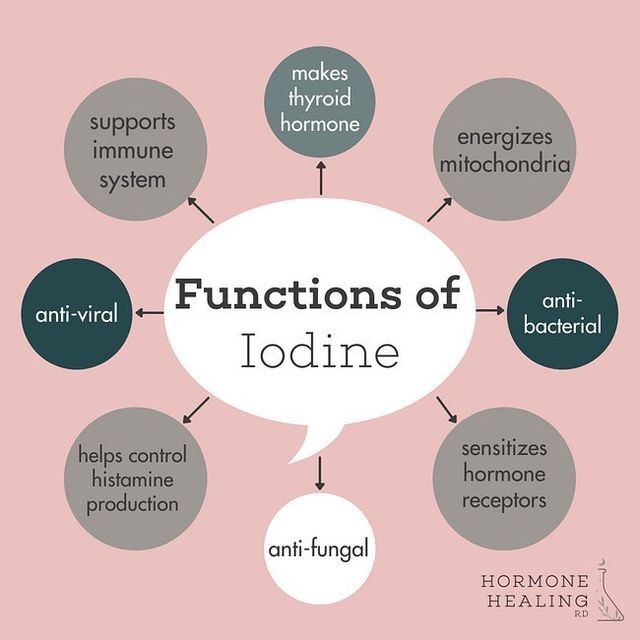8 Signs Your Body Need Iodine

Iodine is an essential mineral that plays a crucial role in maintaining overall health and well-being. It is a key component of thyroid hormones, which regulate metabolism and support the growth and development of various body systems. While iodine deficiency is relatively rare in many parts of the world due to iodized salt and the availability of iodine-rich foods, it can still occur, leading to several health problems. In this article, we will explore eight signs that may indicate your body needs iodine, highlighting the importance of this essential mineral for maintaining optimal health.
8 Signs your body needs Iodine:
- Thyroid Dysfunction
- Weight Fluctuations
- Cognitive Impairment
- Dry Skin and Hair Loss
- Fatigue and Weakness
- Hormonal Imbalances
- Swelling or Enlargement of the Neck
- Impaired Immune Function
Thyroid Dysfunction:
One of the primary roles of iodine is to support the proper functioning of the thyroid gland. The thyroid gland produces hormones that regulate metabolism, growth, and development. Iodine deficiency can disrupt thyroid function, leading to conditions such as hypothyroidism or an enlarged thyroid gland (goiter). Symptoms of hypothyroidism include fatigue, weight gain, dry skin, hair loss, and sensitivity to colds. If you experience any of these symptoms, it is essential to consult with a healthcare professional to determine if iodine deficiency is the underlying cause.
Weight Fluctuations:
Iodine deficiency can affect the body's metabolism, leading to unexplained weight fluctuations. An underactive thyroid due to iodine deficiency can slow down the metabolic rate, making it difficult to lose weight or causing weight gain even with a balanced diet and regular exercise. If you notice significant and unexplained changes in your weight, particularly coupled with other symptoms such as fatigue or hair loss, it is crucial to consider iodine deficiency as a potential cause.
Cognitive Impairment:
Adequate iodine levels are vital for proper brain development and cognitive function. Iodine deficiency, particularly during pregnancy and early childhood, can have severe consequences on brain development and cognitive abilities. In adults, iodine deficiency may contribute to cognitive impairment, including poor concentration, memory problems, and decreased alertness. If you or a loved one experiences unexplained cognitive difficulties, ensuring adequate iodine intake may be beneficial.
Fatigue and Weakness:
Fatigue and weakness are common symptoms experienced by individuals with iodine deficiency. Since iodine plays a crucial role in energy production and metabolism, a deficiency can lead to reduced energy levels and overall feelings of fatigue. If you often feel tired, lack energy, or experience weakness, despite adequate rest and a healthy lifestyle, it is essential to investigate the possibility of iodine deficiency.
Dry Skin and Hair Loss:
READ ALSO » Secrets To Keeping That Hot Slim Body
The health of your skin and hair can be affected by iodine deficiency. Insufficient iodine levels can cause dry, flaky skin, and brittle hair that is prone to breakage. The skin may become rough, scaly, and lacking moisture, while the hair may appear dull, thin, and easily fall out. If you notice these changes in your skin and hair, considering iodine deficiency as a potential cause is crucial for addressing the underlying issue.
Hormonal Imbalances:
Iodine plays a crucial role in the regulation of various hormones throughout the body. Hormonal imbalances, particularly related to the reproductive system, can occur as a result of iodine deficiency. Women with low iodine levels may experience irregular menstrual cycles, fertility problems, or complications during pregnancy. Men may also experience disruptions in reproductive health due to iodine deficiency. If you suspect hormonal imbalances, it is important to consult with a healthcare professional who can assess your iodine status and provide appropriate guidance.
Swelling or Enlargement of the Neck:
One of the visible signs of iodine deficiency is the swelling or enlargement of the thyroid gland, known as a goitre. When the thyroid gland doesn't receive enough iodine, it tries to compensate by growing larger. This can lead to noticeable swelling in the neck area. If you observe an unusual lump or swelling in the front of your neck, it is essential to consult a healthcare professional for further evaluation.
Impaired Immune Function:
Iodine plays a vital role in supporting a healthy immune system. It helps to stimulate the activity of immune cells and promotes the production of antibodies. A deficiency An iodine deficiency immune response makes you more susceptible to infections and illnesses. If you frequently experience colds, flu, or other infections, it is worth considering iodine deficiency as a contributing factor.
Iodine is an essential mineral required for maintaining optimal health and well-being. Its importance in supporting thyroid function, metabolism, cognitive function, and overall vitality cannot be overstated. While severe iodine deficiency is uncommon in many parts of the world, mild deficiencies can still occur, leading to various health problems. If you experience any of the signs mentioned, it is essential to consult with a healthcare professional who can assess your iodine levels and provide appropriate guidance. Maintaining a balanced diet that includes iodine-rich foods like seafood, seaweed, dairy products, and iodized salt can help ensure an adequate intake of iodine and support your overall health.
